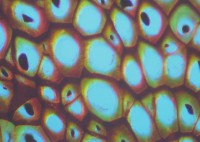
The immune system is your body’s natural protective force. When cancer cells develop or when foreign substances invade your body, your immune system goes on the attack, sending specialized cells to target these “foreign” invaders.
Highly specialized immune system cells called microglia protect the brain. While examining brain cancer tumors in diseased mice, Canadian researchers found deactivated microglia. When these cells were reactivated, the mice lived two to three times longer than untreated mice with the same type of brain tumor.
A joint effort by research teams at the University of Calgary Hotchkiss Brain Institute and Southern Alberta Cancer Research Institute, the discovery may eventually lead to new immunotherapy treatments for brain cancer, although researchers say additional research is needed before clinical trials can be contemplated. The Canadian study focused on glioblastoma tumors, the deadliest form of brain cancer. Fifteen months is the median survival rate for glioblastoma patients. Even with currently available treatments, fewer than one in 20 pass the five-year survival mark.
In Medical News Today (MNT), study author V. Wee Yong, who holds a Canada Research Chair in Neuroimmunology, explained that inactivated microglia are a normal result of the battle between immune cells and cancer cells. Over time, aggressive tumor cells can overwhelm the brain’s immune system, deactivating its defender cells. Reactivating these cells can “tip the battle in favor of the brain to suppress the tumor,” Yong said.
The Canadians used a highly caustic drug to restore function to the brain’s immune cells. Issels cancer treatments strengthen and enhance immune system function using non-toxic integrated immunotherapy to avoid the destructive side effects of harsh drugs.
